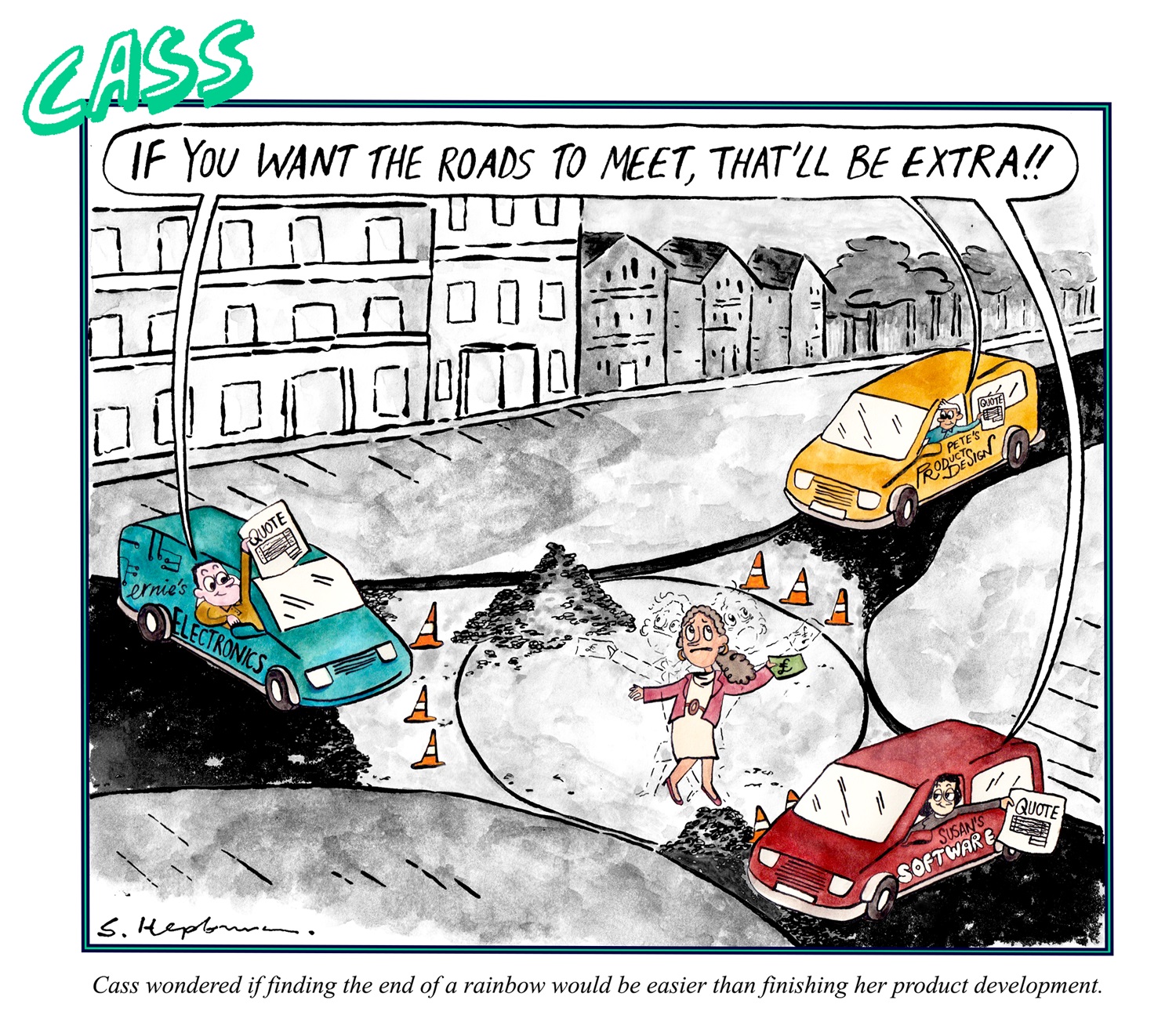Relationship management in Electronics Product Development is critical. It is an incredibly fractious union because all concerned know there are risks and even a whiff of an entity not acting in the best interests of another can disrupt the dynamics of a team. Trust is critical. The four parties usually involved are the client, electronics hardware/firmware development team, product design (enclosures), and software development if it applies. Everyone is ecstatic at the outset for the following reasons:
- The client is joyful because the project’s on its way and dreams of an imminent revenue stream seem just round the corner.
- All the developers are happy because there’s development revenue.
The following questions and answers help a client avoid these and other issues.
Who takes responsibility for leadership and project management of development?
Some client’s mistakenly believe that one of the major disciplines will automatically pick up project management (electronics/software/product design). Not so. In fact, most will shun it because it is difficult to lead other independent disciplines. This has insidious and regrettable consequences. No one leads the team and takes overall responsibility, and the first issue that doesn’t lie entirely with one or other of the disciplines is likely to falter. Being a bit cynical but not wholly unrealistic, the major disciplines will respond to issues that aren’t clear cut by pouring energy into showing that one of the other disciplines is responsible rather than striving to find solutions. That’s enough of the negative – what follows avoids these problems.
- Projects must be managed and led.
- Usually, it is best if the client does it – but that’s only if known how.
- One of the disciplines can lead it – make sure professional project plan is compiled, monitored and managed through the entire project.
- Aglie project planning and management is the best (Atlassian – Jira)
- Make sure that project management is resourced – named project manager who chairs meetings.
This question is going to be answered from the point of view of human resources only. The EM can give further guidance if required (CONTACT US).
After picking a project manager, pick a team and immediately set up a recurring progress meeting (once a week usually suits). A quorum is the technical disciplines, but it is often sensible to consider other stakeholders that may have a significant impact from early on:
- Core technical functions: electronics, mechanics, product design, software.
- Operations: design for manufacture is best considered very early on – even with early prototypes. If it isn’t, design choices that are manufacturable but sub-optimal tend to stick.
- Quality: starting a quality plan and probing suppliers from the earliest stages always pays.
- Sales and marketing: it is all too easy for projects to lose sight of commercial goals.
How do I make sure the project development runs to schedule?
There are two things to confirm exist, are up to date, and are monitored constantly:
- Specifications – see OPG.
- Project Plan



